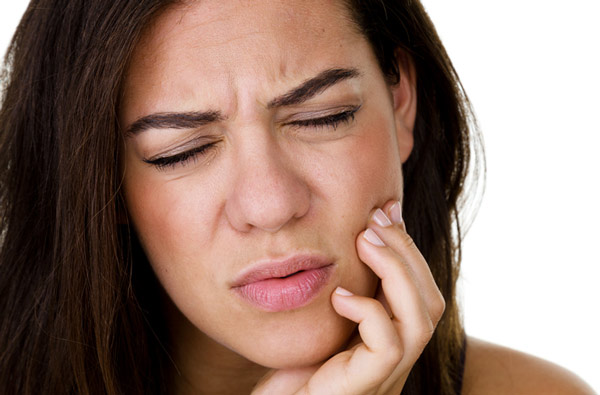TMJ/TMD
Irvine, CA
 Dr. Christianne Lee and our team at Irvine Dentistry are specialized in orofacial pain to treat disorders in your TMJ/TMD joint, which connects your jawbone to the skull, efficiently. If you have pain in your jaw joints, or in the muscles controlling your joint, you should check with our dentist to see if TMD (temporomandibular joint disorder) is the cause. You should also consult our dentist if you have pain in your face, locked joints, headache, or trouble chewing or biting. Dr. Christianne Lee and our team at Irvine Dentistry are specialized in orofacial pain to treat disorders in your TMJ/TMD joint, which connects your jawbone to the skull, efficiently. If you have pain in your jaw joints, or in the muscles controlling your joint, you should check with our dentist to see if TMD (temporomandibular joint disorder) is the cause. You should also consult our dentist if you have pain in your face, locked joints, headache, or trouble chewing or biting.
You are more likely to develop TMJ/TMD if you have a habit of grinding your teeth, suffer from arthritis, have poor alignment of teeth, or have stress. Other factors are an injury, movement of the soft cushion between the ball and socket of your joint, or rupture in a connective tissue disease. However, our dentists will detect the underlying cause and provide effective treatments.
How Do We Diagnose TMD?
Since the symptoms of TMD are similar to sinus, tooth decay, or gum disease, our dentists will physically examine the jaw first to locate any sound or difficulty while moving your jaw and ask about your medical history. We will then take an x-ray and other tests like computed tomography (CT) scan and magnetic resonance imaging (MRI), to ensure correct diagnosis of the underlying issue.
Treatment for TMD
We can teach our patients muscle relaxing exercises and prescribe them pain-relieving or anti-anxiety medicines.
Dr. Lee can refer you to a specialist, who can also design a custom-made splint or night guard for our patients who have a habit of clenching or grinding their teeth. The splints are plastic mouthpieces that prevent touching of teeth, and our patients can sleep while wearing a customized night guard.
A Transcutaneous Electrical Nerve Stimulator (TENS) uses very low electric currents to relax the tightened muscles. Your specialist might perform laser surgery to relieve the pain. Some of our previous TMD patients have benefitted from replacing missing teeth.
In case our patient's jaws are locked, an orofacial pain specialists will perform a process to unlock them. Anesthesia is first given to relieve the pain, and then needles are inserted to clear it. They also use special tools to free a locked disc in the joint, if needed. This procedure is known as arthrocentesis.
Your specialist performs arthroscopic surgery as well. The procedure involves using an arthroscope to see inside our patient's joint. They leave an unnoticeable cut while incising near your ear to insert this small device. They execute this process if there is inflamed tissue present in the patient's joint, or to realign it.
TMD is not a serious issue but can cause pain in the patient's face, head, neck, and shoulders. The patients have trouble opening their mouths, and while eating. Sometimes, the pain from TMD affects the patient's sleep. Over time, if TMD is left untreated, the patient's daily routine might be hampered. Constant pain in the joints affects the patient's mood and focusing ability. We take any problems in our patient's TMJ/TMD joint seriously. Our aim is to provide exceptional dental care.
Schedule Your Appointment
To learn more, contact Irvine Dentistry at (949) 656-2933 today. |